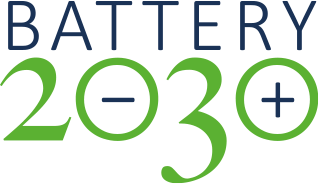MATERIALS ACCELERATION PLATFORM
To generate the new ultra-high-performing batteries we need to develop new computational and experimental techniques targeting increased spatial resolution, time domains, and operando conditions. This is challenging for both theoretical and experimental science. Experimental input is needed to identify input parameters for the computational models, and modelling results have to be validated against experimental results.
Today’s existing methodologies are simply not enough if we want to accelerate the battery discovery process. A critical element to succeed is the development of an AI-orchestrated and fully autonomous Materials Acceleration Platform (MAP) that is capable of utilizing data from all domains, time- and length scales of the battery value chain. X-ray–based techniques, as well as neutron-based techniques, are critical, specifically combined, to unlock information about battery interfaces. Modules and apps for fast, automated analysis and characterization using AI and simulation are currently being developed and will be refined in the years to come. Important here is also get the battery eco-system onboard and establish community-wide testing protocols, ontology and data standards for battery interfaces.
Battery Interphase Genome (BIG), is deeply intertwined with the Materials Acceleration Platform (MAP). Both parts are necessary to build the physical and virtual platforms that deepen our understanding.
